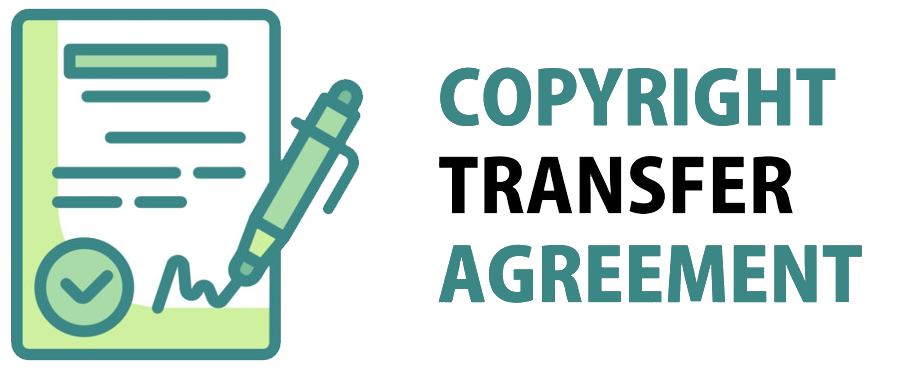Zero Waste Lifestyle as an Effort to Reduce Waste From Its Source
Abstract
The issue of waste increasingly threatens life in the biosphere, both on land and in water bodies. The accumulated waste collected each year forms massive piles. Waste that is burned causes air pollution and produces greenhouse gases, contributing to global warming and ozone depletion. Various methods, including recycling, have been implemented, yet only 20% of waste is successfully recycled. Therefore, it is necessary to make efforts to reduce waste at its source by educating people about a zero-waste lifestyle. This research is a qualitative study with data collected from interviews, documentation, participatory observation, and literature review. Additionally, questionnaires were used to obtain the zero-waste index percentage and to complement the data. The research subjects include the community and the KerDUS Community in Kendal Regency, Indonesia. The community actively engages in educating the public about zero waste. The community prepares trainers and mentors to provide environmental awareness materials and training on recycling used goods. The community's slogan "Zero Waste Konco Resikan" inspires members to continually share their knowledge. The divisions involved in waste management include POC Konco Resikan, eco-enzyme, ecobrick, maggot gazebo, florist, Mijel soap, bioactivator, Bungpi lampion, compost, and fabric mats. Trained individuals are expected to practice these methods at home.
Keywords
Full Text:
PDFReferences
Abhishek Kumar, A., Cheela, V. R. S., D’Adamo, I., Iacovidou, E., Islam, M. R., Johnson, M., Miller, T. R., Parajuly, K., Parchomenko, A., Radhakrishan, L., Zhao, M., Zhang, C., & Li, J. (2021). Zero Waste Approach Towards a Sustainable Waste Management. Resources, Environment and Sustainability, 3(January), 100014. https://doi.org/10.1016/j.resenv.2021.100014
Ali, S. R., & Kumar, R. (2019). Strategic Framework and Phenomenon of Zero Waste for Sustainable Future. Contaminants in Agriculture and Environment: Health Risks and Remediation, 1, 200–215. https://doi.org/10.26832/aesa-2019-cae-0167-015
Handayana, I. G. N. Y., Angraini, L. M., Sudiarta, I. W., Qomariyah, N., & Alaa, S. (2019). Gerakan Zero Waste Sebagai Pendidikan Lingkungan Bersih. Warta Desa, 1(3), 279–288.
Hidayati, N., Hajar, N., & Setiyanto, F. (2021). Education of Waste Management Based on Zero Waste in Kendal District (Case Study : Waste Recycling Craft Community (Kerdus), Kendal District, Central Java ). IOP Conf. Series: Earth and Environmental Science, 755. https://doi.org/10.1088/1755-1315/755/1/012077
Khairunisa, N. S., & Safitri, D. R. (2020). Integrasi Data Sampah Sebagai Upaya Mewujudkan Zero Waste Management : Studi Kasus di Kota Bandung. Analisa Sosiologi, 9, 108–123.
Nizar, M., Munir, E., Munawar, E., & Irvan. (2017). Manajemen Pengelolaan Sampah Kota Berdasarkan Konsep Zero Waste: Studi Literatur. Jurnal Serambi Engineering, 4(2), 93–102.
Setyono, A. E., & Sinaga, N. (2021). Zero Waste Indonesia: Peluang, Tantangan dan Optimalisasi Waste to Energy. EKSERGI Jurnal Teknik Energi, 17(2), 116–124. https://doi.org/10.32497/eksergi.v17i2.2619
Sugiyono. (2016). Metode Penelitian Kombinasi (Mixed Methode) (Sutopo (ed.); 8th ed.). Alfabeta.
Zaman, A. (2022). Zero-Waste : A New Sustainability Paradigm for Addressing the Global Waste Problem. In The Vision Zero Handbook (p. 24). Curtin University Sustainability Policy Institute, School of Design and the Built Environment, Curtin University.
Zaman, A. U., & Lehmann, S. (2013). The Zero Waste Index: A Performance Measurement Tool for Waste Management Systems in a “Zero Waste City.” Journal of Cleaner Production, 50(April), 123–132. https://doi.org/10.1016/j.jclepro.2012.11.041
Zulfa, S. A., Rahayu, P., & Rini, E. F. (2021). Ngemplak Sutan Sebagai Kampung Zero Waste di Surakarta. Desa-Kota, 3(1), 49–60. https://doi.org/10.20961/desa-kota.v3i1.34463.49-60
Detiknews. Rabu 19 Februari 2020. Mengenang Tragedi Longsor Sampah di TPA Leuwigajah. News.detik.com. diakses tanggal 25 Februari 2021
https://www.kendalkab.go.id/berita/id/20191016004/sekda_kendal__pengelolaan_sampah_harus_dirubah_dari_sumbernya diakses tanggal 8 Mei 2021
http://dlh.kendalkab.go.id/berita/sejarah-hari-peduli-sampah-nasional diakses tanggal 8 Mei 2021
https://nationalgeographic.grid.id/read/132263813/studi-jumlah-sampah-di-bumi-akan-mencapai-13-miliar-ton-pada-2040 senin 27 Juli 2020
https://journals.sagepub.com/doi/pdf/10.1177/0734242X231170264 diakses tanggal 4 Juni 2024 atau 0734242X231170264 (sagepub.com)
DOI: http://dx.doi.org/10.22441/jies.v13i1.27591
Refbacks
- There are currently no refbacks.
Copyright (c) 2024 Jurnal Ilmu Ekonomi dan Sosial (JIES)

This work is licensed under a Creative Commons Attribution-ShareAlike 4.0 International License.
Jurnal Ilmu Ekonomi dan Sosial (JIES)
Editorial Office:
Pusat Penelitian Universitas Mercu Buana Jakarta, Gedung D Lantai 1,
Jalan Meruya Selatan No. 01, Kembangan, Jakarta Barat 11650.
Phone 021-5840816 Extention 3451 Fax. 021-5840813.
Homepage : http://www.mercubuana.ac.idEmail : [email protected]
| Print ISSN: 2301-9263 | |
| Online ISSN: 2621-0371 |

Jurnal Ilmu Ekonomi dan Sosial (JIES) and the article sare licensed under a Creative Commons Attribution-ShareAlike 4.0 International License.










